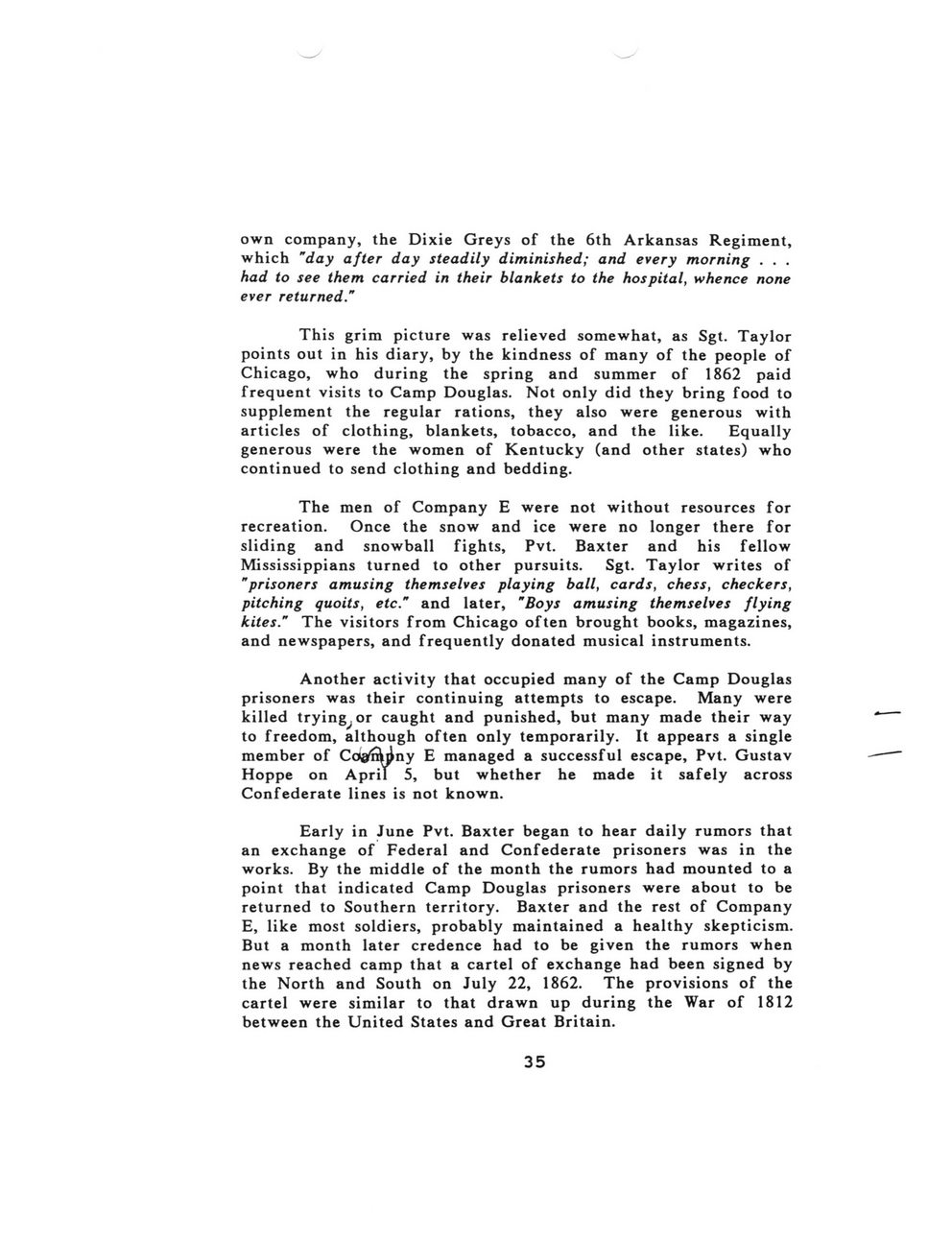This text was obtained via automated optical character recognition.
It has not been edited and may therefore contain several errors.
own company, the Dixie Greys of the 6th Arkansas Regiment, which "day after day steadily diminished; and every morning . . . had to see them carried in their blankets to the hospital, whence none ever returned." This grim picture was relieved somewhat, as Sgt. Taylor points out in his diary, by the kindness of many of the people of Chicago, who during the spring and summer of 1862 paid frequent visits to Camp Douglas. Not only did they bring food to supplement the regular rations, they also were generous with articles of clothing, blankets, tobacco, and the like. Equally generous were the women of Kentucky (and other states) who continued to send clothing and bedding. The men of Company E were not without resources for recreation. Once the snow and ice were no longer there for sliding and snowball fights, Pvt. Baxter and his fellow Mississippians turned to other pursuits. Sgt. Taylor writes of "prisoners amusing themselves playing ball, cards, chess, checkers, pitching quoits, etc." and later, "Boys amusing themselves flying kites." The visitors from Chicago often brought books, magazines, and newspapers, and frequently donated musical instruments. Another activity that occupied many of the Camp Douglas prisoners was their continuing attempts to escape. Many were killed trying^ or caught and punished, but many made their way to freedom, although often only temporarily. It appears a single member of Coa^nVpny E managed a successful escape, Pvt. Gustav Hoppe on April 5, but whether he made it safely across Confederate lines is not known. Early in June Pvt. Baxter began to hear daily rumors that an exchange of Federal and Confederate prisoners was in the works. By the middle of the month the rumors had mounted to a point that indicated Camp Douglas prisoners were about to be returned to Southern territory. Baxter and the rest of Company E, like most soldiers, probably maintained a healthy skepticism. But a month later credence had to be given the rumors when news reached camp that a cartel of exchange had been signed by the North and South on July 22, 1862. The provisions of the cartel were similar to that drawn up during the War of 1812 between the United States and Great Britain. 35

Baxter, Marion Francis Marion-Francis-Baxter-Bio.-035